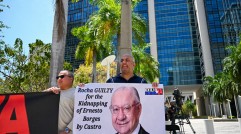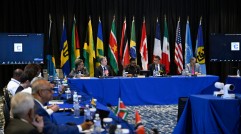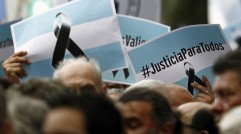US, Cuba Relations: American, Cuban Government Officials Set for Fourth Round of Diplomatic Talks
U.S. and Cuban government officials are proceeding with another round of diplomatic talks from Washington, D.C. on Thursday. As the U.S. State Department recognized, the latest talks will be the fourth round of discussions to reestablish diplomatic relations.
The State Department official acknowledged the "sense of commitment" to move forward with the diplomatic talks following U.S. President Barack Obama and Cuba President Raul Castro's meeting during the Summit of the Americans in Panama in April.
Although the meeting brought encouragement to continue talks, the topics of reopening embassies is still an important subject for the U.S.
"We are talking about how our embassy will operate when we reopen embassies in each other's countries, and the things that Cuba has often said they would like to see or would not like to see are obviously things that may or may not appear in their government's position when they come to the table," said a State Department official during a press call.
The official added, "But I don't think it's a secret to anyone that the Cuban government does not like the democracy programs that we have had. We have said that we will continue to request funds for democracy programs, but we also believe that this direct engagement is a way of directly supporting the Cuban people more effectively than we have in the past."
The official reiterated the status of Guantanamo Bay is not part of the upcoming talks, and Obama "has made clear he's not interested in having that conversation."
In regards to Cuba's placement on the State Sponsor of Terrorism List, which Obama -- based on a recommendation by Secretary of State John Kerry -- has moved to remove them, the State Department official said there are no efforts underway in Congress to block Cuba's removal from the list.
The State Department official acknowledged that " fully normal relations do not include an economic embargo," but that is a "longer-term" diplomatic normalization process requiring Congress.
Meanwhile, Sen. Marco Rubio, R-Fla., a Cuban-American, introduced the "Cuban U.S. Claims Settlement Act" that would require Cuba to addressed "unsettled and unpaid legal claims" with the U.S. The bill, also introduced with Sen. David Vitter, R-La., stated the Castro regime confiscated between $7 billion and $8 billion in properties originally owned by American citizens and businesses.
"Many families and entities in the U.S. and around the world deserve just compensation for the properties the Castro regime seized from them and has been making money off of to repress the Cuban people," said Rubio in a statement. "At the very least, President Obama and any future president should force the Castro regime to pay back the people they stole from before travel and trade restrictions are eased."
"It's obvious that President Obama wants a quick fix, but we shouldn't lift our embargo against Cuba without adequate assurances to protect future U.S. business," said Vitter. "Ensuring that these legal claims are accounted for and are being settled is a must for the American families and businesses whose property was seized, and for ensuring any degree of future business with Cuba."
Vitter added, "We need a long-term plan to ensure that these families' claims are returned once and for all."
Rubio said the legislation would require such claims to be addressed before easing trade and travel restrictions currently placed on the island country.
__
For the latest updates, follow Latin Post's Michael Oleaga on Twitter: @EditorMikeO or contact via email: m.oleaga@latinpost.com.
Subscribe to Latin Post!
Sign up for our free newsletter for the Latest coverage!














